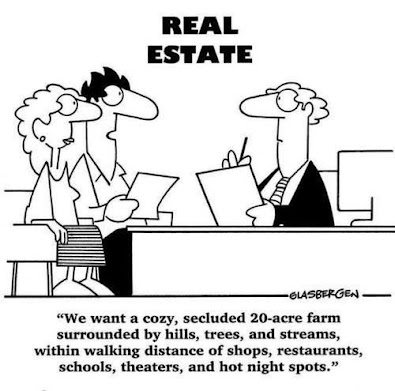Question: One day we hear
it’s a Buyer’s market, then we hear it’s a Seller’s market. Which is it now?
Answer: A buyer’s market occurs when supply exceeds demand. To put it another way, there are plenty of homes for sale, but there’s a shortage of interested buyers. These conditions give buyers leverage over sellers because when supply is higher and demand is lower, the market is forced to respond.
In a buyer’s market, real estate prices decrease, and homes
linger on the market longer. So, sellers must compete with each other in order
to attract buyers. Typically, sellers will drop their asking prices to gain an
advantage in the market. Furthermore, they are much more willing to negotiate
offers to prevent buyers from walking away.
A seller’s market arises when demand exceeds supply. In other words, there are many interested buyers, but the real estate inventory is low. Since there are fewer homes available, sellers are at an advantage.
In a seller’s market, homes sell faster, and buyers must compete
with each other in order to score a property. These market conditions often
make buyers willing to spend more on a home than they would otherwise.
Therefore, sellers can raise their asking prices.
Market activity is measured in terms of Absorption rate, aka Ab rate.
For example, let’s look at Lansing, Il.
As of this writing, Lansing has 31 active single family detached
properties for sale.
Lansing homes are selling at the rate of 13.6 homes per month.
31/13.6 = 2.3 Absorption rate.
This indicates a Strong Seller’s Market.
If Ab rate is less than 5, it’s a Seller’s Market.
If Ab rate is 5-7, it’s a balanced market.
If Ab rate is greater than 7, it’s a Buyer’s Market.
Let’s look at Munster, In:
As of this writing, Munster has 32 active single family detached
properties for sale.
Munster homes are selling at the rate of 28.3 homes per month.
31/28.3 = 1.1 Absorption rate.
This indicates an even Stronger Seller’s Market.
The bottom line is that most of the area is experiencing a
strong Seller’s market.
When will this change? Unfortunately, there is no crystal ball.













































































































































































